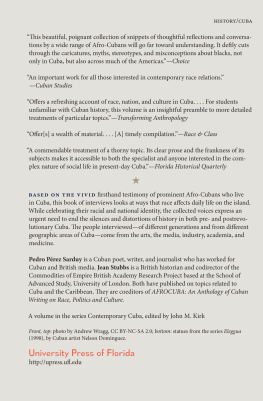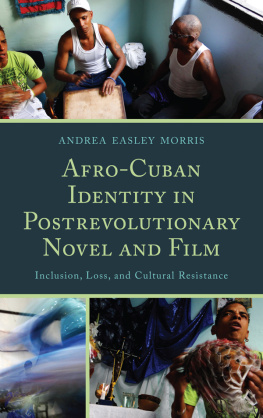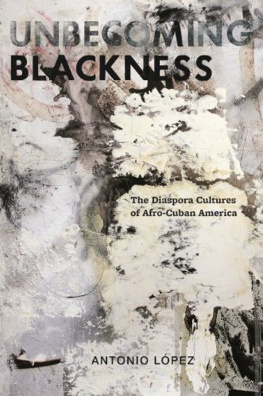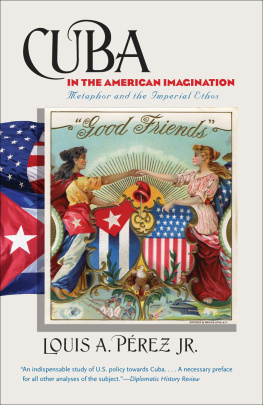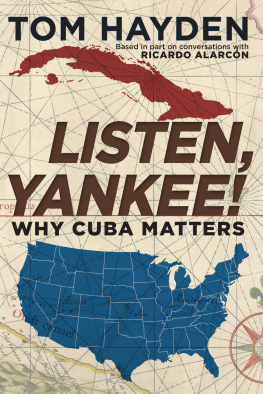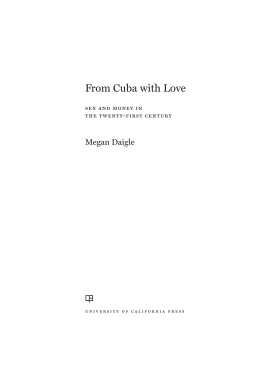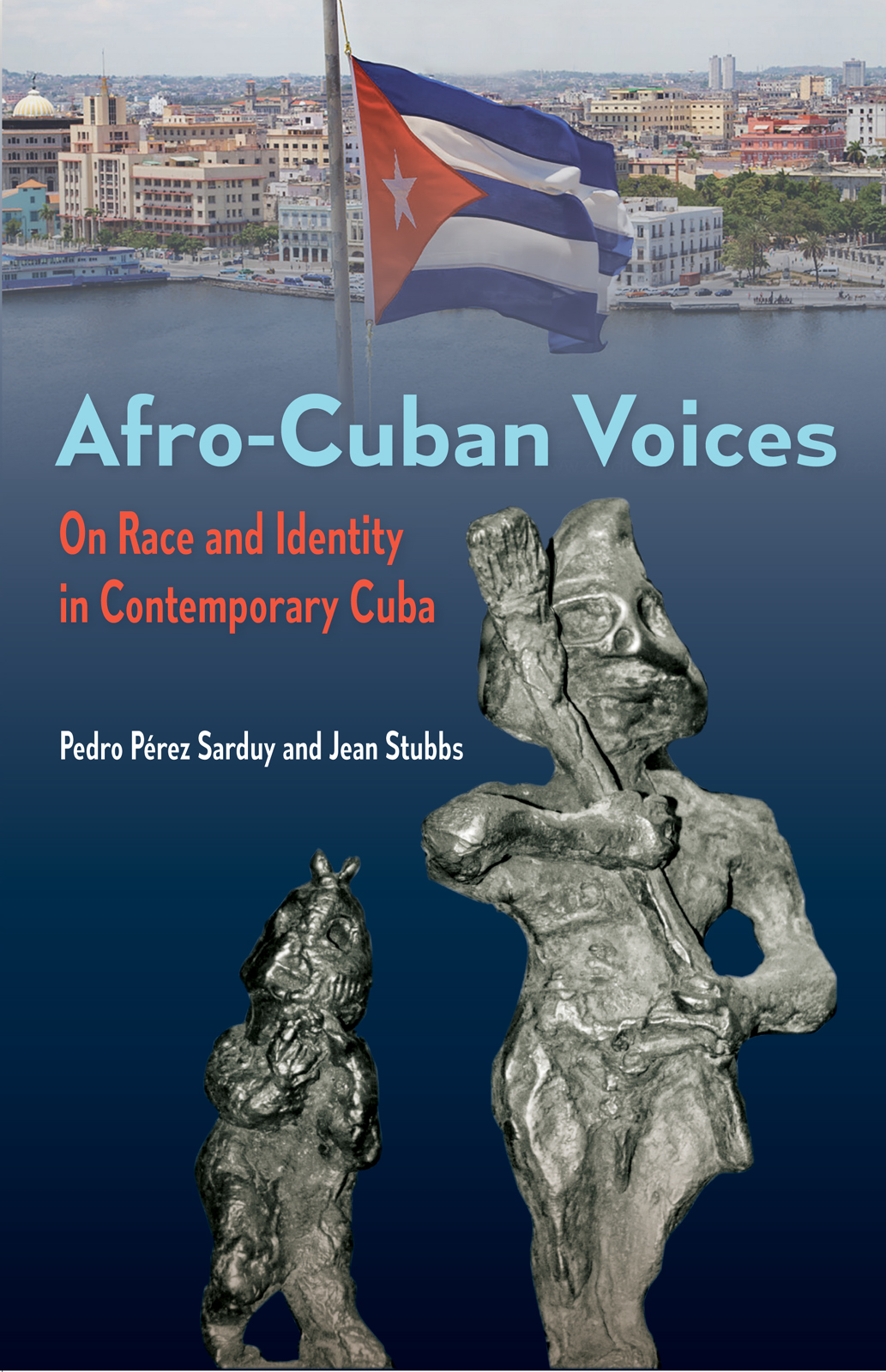Pedro Pérez Sarduy - Afro-Cuban Voices: On Race and Identity in Contemporary Cuba
Here you can read online Pedro Pérez Sarduy - Afro-Cuban Voices: On Race and Identity in Contemporary Cuba full text of the book (entire story) in english for free. Download pdf and epub, get meaning, cover and reviews about this ebook. year: 2000, publisher: University Press of Florida, genre: Politics. Description of the work, (preface) as well as reviews are available. Best literature library LitArk.com created for fans of good reading and offers a wide selection of genres:
Romance novel
Science fiction
Adventure
Detective
Science
History
Home and family
Prose
Art
Politics
Computer
Non-fiction
Religion
Business
Children
Humor
Choose a favorite category and find really read worthwhile books. Enjoy immersion in the world of imagination, feel the emotions of the characters or learn something new for yourself, make an fascinating discovery.
- Book:Afro-Cuban Voices: On Race and Identity in Contemporary Cuba
- Author:
- Publisher:University Press of Florida
- Genre:
- Year:2000
- Rating:3 / 5
- Favourites:Add to favourites
- Your mark:
Afro-Cuban Voices: On Race and Identity in Contemporary Cuba: summary, description and annotation
We offer to read an annotation, description, summary or preface (depends on what the author of the book "Afro-Cuban Voices: On Race and Identity in Contemporary Cuba" wrote himself). If you haven't found the necessary information about the book — write in the comments, we will try to find it.
From the forewords:
At a time when Cuba is undergoing immense economic and social changes, race becomes a kind of cultural litmus test for the national identity. . . . This anthology illustrates fully that it is possible to be both revolutionary and black in Cuba.--Manning Marable, Columbia University
The authors of Afro-Cuban Voices, also key actors in the new, unfolding dialogue about race in Cuba, make a seminal contribution through a forthright critique of racial blind spots in official history and present-day racial discrimination.--James Early, director of cultural studies and communication, Smithsonian Institution
From the series editor:
A courageous attempt to deal head-on with the issue of race in Cuba today. . . . Prez Sarduy and Stubbs [seek to] put a human face on this debate, and do so well. The book will be received with relief by some and with frustration by others. Controversial it will undoubtedly be, since--as with most things Cuban--strong emotions are a given assumption. It will be an admirable beginning for the series and, it is hoped, will spark a much-needed debate in the United States on many aspects of the Cuban question. It is about time.--John M. Kirk
Based on the vivid firsthand testimony of prominent Afro-Cubans who live in Cuba, this book of interviews looks at ways that race affects daily life on the island.
While celebrating their racial and national identity, the collected voices express an urgent need to end the silences and distortions of history in both pre- and postrevolutionary Cuba. The 14 people interviewed--of different generations and from different geographic areas of Cuba--come from the arts, the media, industry, academia, and medicine. They include a doctor who calls for joint U.S.-Cuban studies on high blood pressure and a craftsman who makes the bat drums used in Yoruba worship ceremonies.
All responded to four controversial questions: What is it like to be black in Cuba? How has the revolution made a difference? To what extent is that difference true today? What can be done? Exposing the contradictions of both racial stereotyping and cultural assimilation, their eloquent answers make the case that the issue of race in Cuba, no matter how hard to define, will not be ignored.
A volume in the series Contemporary Cuba, edited by John M. Kirk
Pedro Pérez Sarduy: author's other books
Who wrote Afro-Cuban Voices: On Race and Identity in Contemporary Cuba? Find out the surname, the name of the author of the book and a list of all author's works by series.

